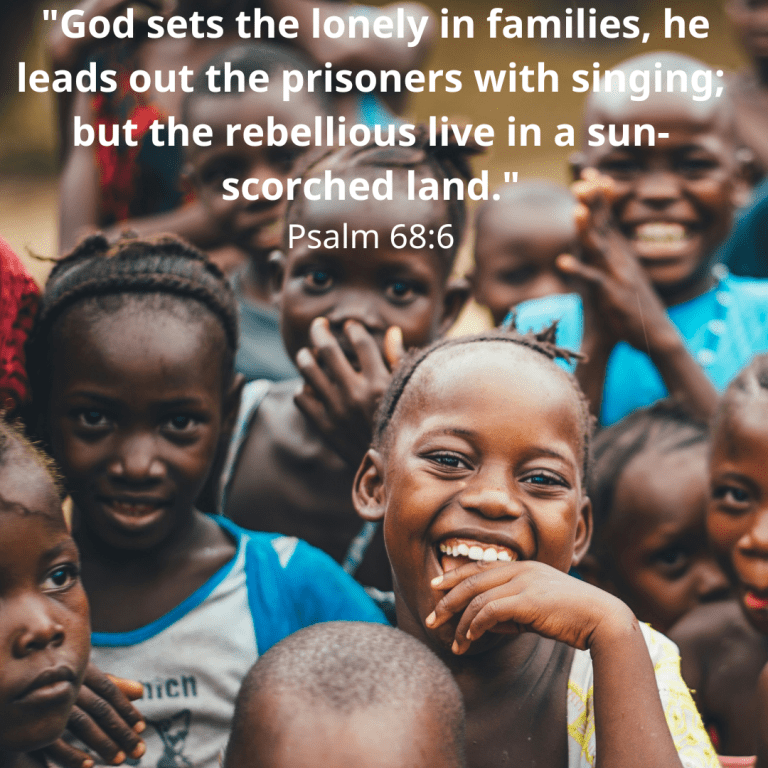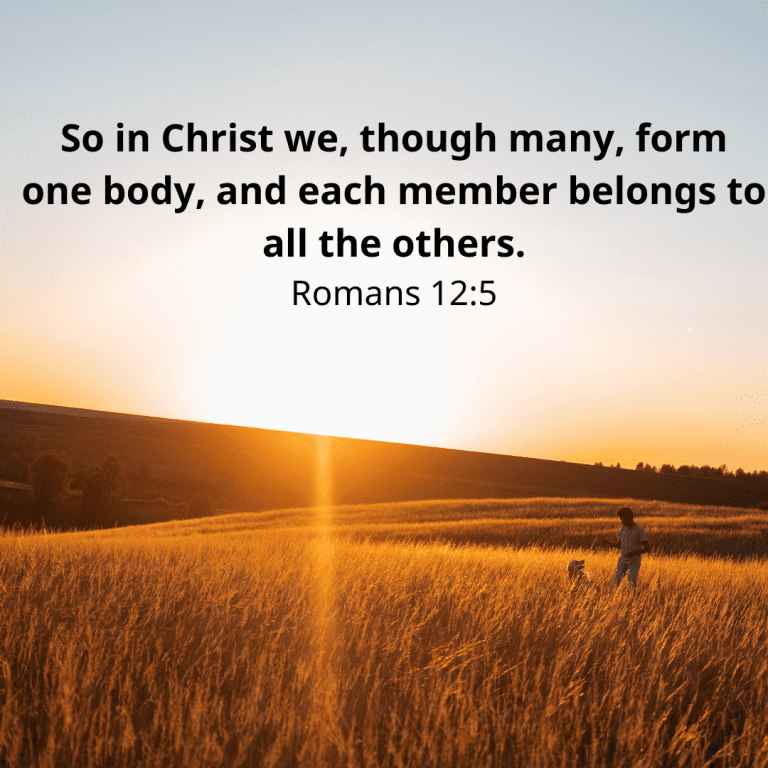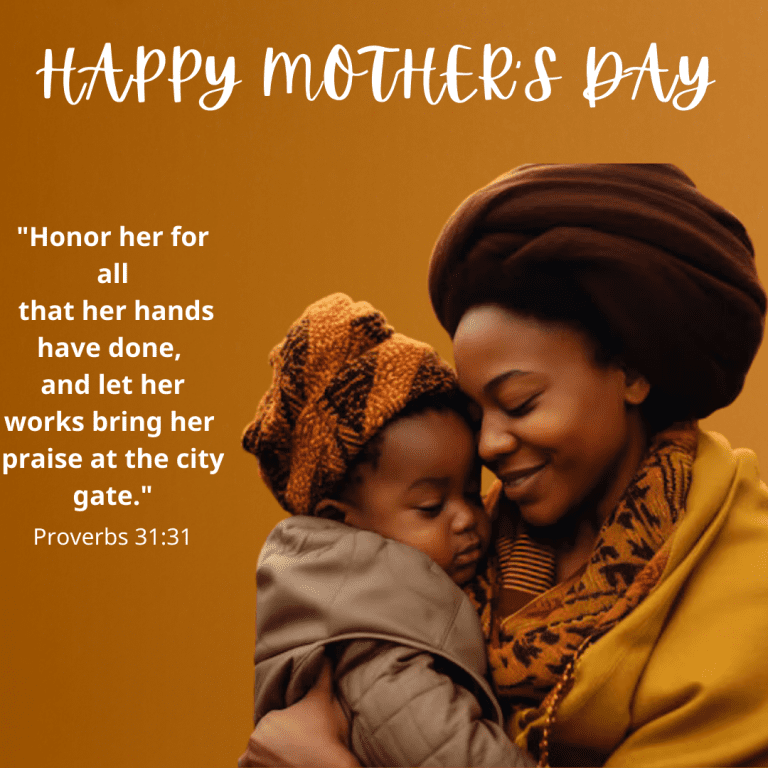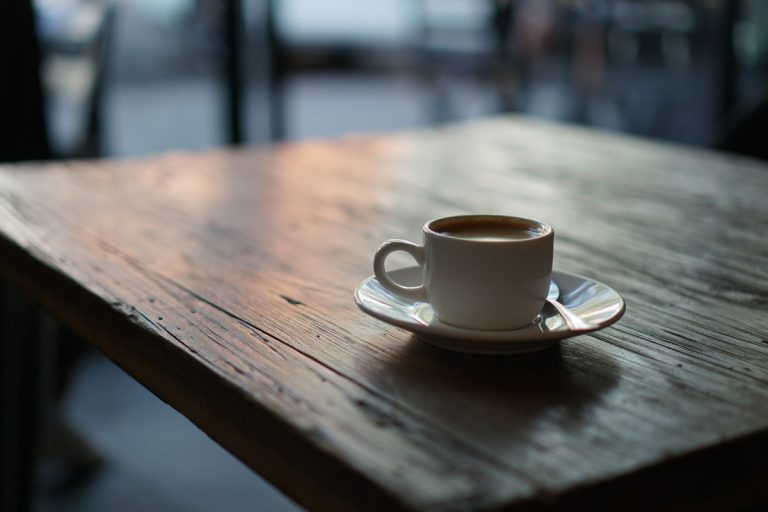The Word of Life
1 In the beginning the Word already existed; the Word was with God, and the Word was God. 2 From the very beginning the Word was with God. 3 Through him God made all things; not one thing in all creation was made without him. 4 The Word was the source of life, and this life brought light to people. 5 The light shines in the darkness, and the darkness has never put it out.
6 God sent his messenger, a man named John, 7 who came to tell people about the light, so that all should hear the message and believe. 8 He himself was not the light; he came to tell about the light. 9 This was the real light—the light that comes into the world and shines on all people.
10 The Word was in the world, and though God made the world through him, yet the world did not recognize him. 11 He came to his own country, but his own people did not receive him. 12 Some, however, did receive him and believed in him; so he gave them the right to become God's children. 13 They did not become God's children by natural means, that is, by being born as the children of a human father; God himself was their Father.
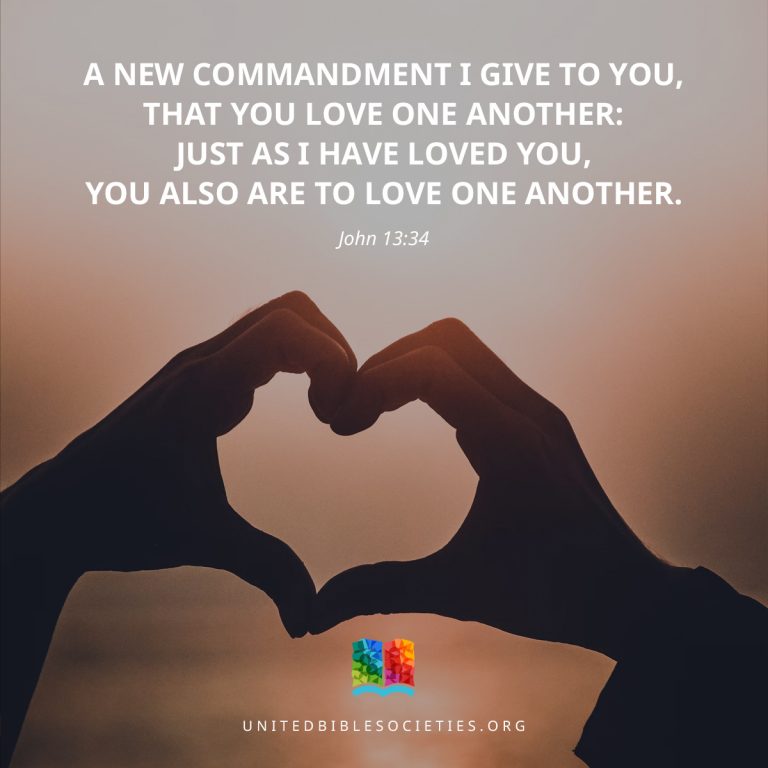
14 The Word became a human being and, full of grace and truth, lived among us. We saw his glory, the glory which he received as the Father's only Son.
15 John spoke about him. He cried out, “This is the one I was talking about when I said, ‘He comes after me, but he is greater than I am, because he existed before I was born.’”
16 Out of the fullness of his grace he has blessed us all, giving us one blessing after another. 17 God gave the Law through Moses, but grace and truth came through Jesus Christ. 18 No one has ever seen God. The only Son, who is the same as God and is at the Father's side, he has made him known.
John the Baptist's Message
(Matthew 3.1-12Mark 1.1-8Luke 3.1-18)19 The Jewish authorities in Jerusalem sent some priests and Levites to John to ask him, “Who are you?”
20 John did not refuse to answer, but spoke out openly and clearly, saying: “I am not the Messiah.”
21 “Who are you, then?” they asked. “Are you Elijah?”
“No, I am not,” John answered.
“Are you the Prophet?” they asked.
“No,” he replied.
22 “Then tell us who you are,” they said. “We have to take an answer back to those who sent us. What do you say about yourself?”
23 John answered by quoting the prophet Isaiah:
“I am ‘the voice of someone shouting in the desert:
Make a straight path for the Lord to travel!’”
24 The messengers, who had been sent by the Pharisees, 25 then asked John, “If you are not the Messiah nor Elijah nor the Prophet, why do you baptize?”
26 John answered, “I baptize with water, but among you stands the one you do not know. 27 He is coming after me, but I am not good enough even to untie his sandals.”
28 All this happened in Bethany on the east side of the Jordan River, where John was baptizing.
The Lamb of God
29 The next day John saw Jesus coming to him, and said, “There is the Lamb of God, who takes away the sin of the world! 30 This is the one I was talking about when I said, ‘A man is coming after me, but he is greater than I am, because he existed before I was born.’ 31 I did not know who he would be, but I came baptizing with water in order to make him known to the people of Israel.”
32 And John gave this testimony: “I saw the Spirit come down like a dove from heaven and stay on him. 33 I still did not know that he was the one, but God, who sent me to baptize with water, had said to me, ‘You will see the Spirit come down and stay on a man; he is the one who baptizes with the Holy Spirit.’ 34 I have seen it,” said John, “and I tell you that he is the Son of God.”
The First Disciples of Jesus
35 The next day John was standing there again with two of his disciples, 36 when he saw Jesus walking by. “There is the Lamb of God!” he said.
37 The two disciples heard him say this and went with Jesus. 38 Jesus turned, saw them following him, and asked, “What are you looking for?”
They answered, “Where do you live, Rabbi?” (This word means “Teacher.”)
39 “Come and see,” he answered. (It was then about four o'clock in the afternoon.) So they went with him and saw where he lived, and spent the rest of that day with him.
40 One of them was Andrew, Simon Peter's brother. 41 At once he found his brother Simon and told him, “We have found the Messiah.” (This word means “Christ.”) 42 Then he took Simon to Jesus.
Jesus looked at him and said, “Your name is Simon son of John, but you will be called Cephas.” (This is the same as Peter and means “a rock.”)
Jesus Calls Philip and Nathanael
43 The next day Jesus decided to go to Galilee. He found Philip and said to him, “Come with me!” ( 44 Philip was from Bethsaida, the town where Andrew and Peter lived.) 45 Philip found Nathanael and told him, “We have found the one whom Moses wrote about in the book of the Law and whom the prophets also wrote about. He is Jesus son of Joseph, from Nazareth.”
46 “Can anything good come from Nazareth?” Nathanael asked.
“Come and see,” answered Philip.
47 When Jesus saw Nathanael coming to him, he said about him, “Here is a real Israelite; there is nothing false in him!”
48 Nathanael asked him, “How do you know me?”
Jesus answered, “I saw you when you were under the fig tree before Philip called you.”
49 “Teacher,” answered Nathanael, “you are the Son of God! You are the King of Israel!”
50 Jesus said, “Do you believe just because I told you I saw you when you were under the fig tree? You will see much greater things than this!” 51 And he said to them, “I am telling you the truth: you will see heaven open and God's angels going up and coming down on the Son of Man.”
Yeesu mu Kumoo le ti ka bo Alla yaa
1 Kabiriŋ foloodulaa to, Kumoo be sotoriŋ ne nuŋ fokabaŋ. Kumoo be Alla fee le nuŋ, aduŋ Kumoo niŋ Alla mu kiliŋ ne ti. 2 Ate be Alla fee le foloodulaa to. 3 Feŋolu bee daata ka bo niŋ ate le la, hani feŋ kiliŋ maŋ daa a kooma. 4 Baluwo be ate le kono, aduŋ baluwo mu moolu la maloo le ti. 5 Maloo be mala kaŋ diboo kono, aduŋ diboo maŋ a dubeŋ noo.
6 Kee doo le sotota nuŋ, Alla ye meŋ kii. A too mu Yaayaa le ti. 7 A naata le ka ke seedoo ti, ka maloo la kuwo seedeyaa fo moolu bee si laa ka bo niŋ ate la. 8 Ate faŋo maŋ ke maloo ti, bari a naata ka maloo la kuwo le seedeyaa.
9 Mala tooñaa, meŋ ka maloo dii moolu bee sondomoo kono, a be naa kaŋ duniyaa kono le. 10 A be nuŋ duniyaa kono le, aduŋ duniyaa dadaata ka bo niŋ ate le la, bari duniyaa maŋ a suutee. 11 A naata a fansuŋ moolu yaa, bari a fansuŋ moolu maŋ a jiyaa. 12 Bari mennu bee ye a jiyaa, aduŋ ì laata a too la, a ye siloo dii wolu le la ka ke Alla diŋolu ti. 13 Wo keta niŋ wuluuñaa le la, meŋ maŋ bo yeloo la, sako moolu la hame kuwolu niŋ ì balajaatoo la lafoo, bari ka bo niŋ Alla faŋo le la.
14 Bituŋ Kumoo naata ke hadamadiŋo ti, a sabatita ntolu kono, aduŋ a be faariŋ hiinoo niŋ tooñaa le la. Ŋà a la semboo niŋ waroo je le, kaatu ate le mu Faamaa Dinkee kiliŋo ti.
15 Yaayaa ye ate le la kuwo seedeyaa, a sarita santo ko, “Ñiŋ ne mu moo ti, ŋa meŋ na kuwo fo nuŋ ko, ‘Ate, meŋ be naa la n noo kaŋ, ate le la kuwo warata nte ti, kaatu ate le foloota nte ñaa!’ ” 16 Ka bo niŋ a la hiinoo la timmoo la, m̀ bee ye hiinoo soto hiinoo kaŋ ne. 17 Kaatu Luwaa diita ka bo Musa le la, bari hiinoo niŋ tooñaa naata ka bo Yeesu Kiristu* le la. 18 Moo nene maŋ Alla je fo a Dinkee kiliŋo doroŋ, meŋ be ko Alla faŋo, aduŋ a be a Faamaa fee. Ate le ye moolu londi Alla la.
Yaayaa Batiseerilaa la seedeyaa
(Matiyu 3:1-12Maaka 1:1-8Luka 3:1-18)19 Ñiŋ ne mu Yaayaa la seedeyaa ti, kabiriŋ Yahuudoolu la alifaalu ye piriisoolu* niŋ ì maakoyirilaalu kii a kaŋ, ka a ñininkaa ko, “Jumaa le mu ite ti?” 20 A maŋ balaŋ ka seedeyaa ke, a ye a seneyandi le ko, “Nte maŋ ke Alimasiihu* ti.” 21 Bituŋ ì ye a ñininkaa ko, “Wo to jumaa le mu ite ti? Fo ite le mu Annabilayi Eliya ti baŋ?” A ko ì ye ko, “Nte maŋ ke Eliya ti.” Wo to le ì ye a ñininkaa kotenke ko, “Fo ite le mu wo annabiyomoo ti baŋ?” A ye ì jaabi ko, “Hanii.” 22 Bituŋ ì ko a ye ko, “Wo to jumaa le mu ite ti? A fo ǹ ye, kaatu ǹ ñanta jaabiroo samba la moolu ye le, mennu ye ǹ kii. I ye muŋ ne fo i faŋo la kuwo to?” 23 A ye ì jaabi niŋ Annabilayi Yesaya le la kumoo la ko:
“Nte le mu moo kumakaŋo ti,
meŋ be sari kaŋ keñewuloo* kono ko,
‘Ali Maariyo la siloo parendi, a ye tiliŋ.’ ”
24 Moo doolu, Farisewolu* ye mennu kii, 25 ì ye a ñininkaa ko, “Wo to, muŋ ne ye a tinna ite ka batiseeroo* ke, niŋ i maŋ ke Alimasiihu ti, sako Eliya, waraŋ wo annabiyomoo?” 26 Yaayaa ye ì jaabi ko, “Nte ka batiseeroo ke niŋ jiyo le la, bari moo kiliŋ ne be ali kono, ali maŋ meŋ loŋ. 27 Ate le mu moo ti, meŋ be naa nte noo kaŋ. M maŋ jari ka hani a la samata juloolu firiŋ.” 28 Ñiŋ kuwolu keta Betaniya saatewo le kono Yoridani Boloŋo kara doo la, Yaayaa be nuŋ batiseeroo la daameŋ.
Yeesu le mu Alla la Saajiiriŋo ti
29 Wo saamoo Yaayaa ye Yeesu je naa la a kaŋ. Bituŋ a ko, “Alla la Saajiiriŋo fele, meŋ ka naa duniyaa la junuboo bondi! 30 Ñiŋ ne mu moo ti, ŋa meŋ na kuwo fo ko, ‘Kewo le be naa nte noo kaŋ, meŋ na kuwo warata nte ti, kaatu ate le sotota nte ñaa.’ 31 Nte faŋo maŋ a loŋ nuŋ, bari n naata ka batiseeroo ke niŋ jiyo la fo n si Banisirayilankoolu londi a la.”
32 Wo to le Yaayaa ye seedeyaa ke ko, “Ŋa Alla la Nooroo je jii kaŋ a kaŋ ko puraa ka bo Arijana kono, aduŋ a tuta a kaŋ ne. 33 Nte faŋo maŋ a loŋ nuŋ, bari ate meŋ ye n kii ka batiseeroo ke niŋ jiyo la, a ko n ye le ko, ‘Kewo, i ye Alla la Nooroo je jii la meŋ kaŋ, aniŋ a tuta a kaŋ, wo le mu moo ti, meŋ ka batiseeroo ke niŋ Alla la Nooroo la.’ 34 Ŋa a je le, aduŋ ŋa seedeyaaroo ke le ko, ñiŋ mu Alla Dinkewo* le ti.”
Yeesu la saayibe foloolu
35 Wo saamoo la, Yaayaa be looriŋ jee kotenke, a niŋ a la saayibe fula. 36 Kabiriŋ Yeesu be tambi kaŋ, Yaayaa ye a je. A ko, “Alla la Saajiiriŋo fele!” 37 Kabiriŋ saayibe fuloo ye Yaayaa moyi ñiŋ fo la, ì ye Yeesu nooma. 38 Yeesu ye a kooma fele, a ye ì je, ì be a nooma kaŋ. A ko ì ye ko, “Ali ka muŋ ne ñini?” Bituŋ ì ko a ye ko, “Rabbi,” meŋ kotoo mu karammoo ti, “i be sabatiriŋ mintoo le?” 39 A ko ì ye ko, “Ali naa, a juubee!” Ì taata, aduŋ ì ye a la sabatidulaa je le. Ñiŋ keta talaŋ naani wulaaroo le la. Bituŋ ì tuta jee wo luŋo la.
40 Kiliŋo mu Anduru le ti, Simoni Pita baadinkewo. A be wo moo fuloo le kono, mennu ye Yaayaa moyi nuŋ diyaamoo la, aduŋ ì bulata Yeesu nooma. 41 Foloo-foloo, a ye a faŋo baadinkewo le je, Simoni. A ko a ye ko, “Ŋà Alimasiihu je le!” meŋ kotoo mu Kiristu ti. 42 Kabiriŋ a ye a samba naŋ Yeesu kaŋ, Yeesu ye a juubee, a ko a ye ko, “Ite le mu Simoni ti, Yohana dinkewo. Saayiŋ, ite be kumandi la Kefas le la.” Wo mu Pita le ti.
Yeesu ye Filipi niŋ Nataniyel kumandi
43 Wo saamoo Yeesu lafita ka taa Kalilee tundoo kaŋ. A ye Filipi je, a ko a ye ko, “N nooma!” 44 Filipi mu Betisayidankoo le ti. Anduru niŋ Pita fanaa bota wo saatewo le to. 45 Filipi ye Nataniyel je. A ko a ye ko, “Ŋà a je le, Musa ye meŋ na kuwo safee Tawuraatoo kono, aniŋ annabiyomoolu fanaa ye meŋ na kuwo safee. Ate le mu Yeesu Nasaretinkoo ti, Yusufa dinkewo.” 46 Bituŋ Nataniyel ko a ye ko, “Fo feŋ bete si bo noo Nasareti saatewo kono baŋ?” Filipi ko a ye ko, “Naa, a juubee!” 47 Kabiriŋ Yeesu ye Nataniyel je naa la a kaŋ, a ye a la kuwo fo ko, “Banisirayilanka tooñaa fele, tapaleeyaa te meŋ na kuwo to!” 48 Nataniyel ye a ñininkaa ko, “Ite ye nte loŋ ñaadii le?” Yeesu ye a jaabi ko, “Janniŋ Filipi ka i kumandi, waatoo meŋ na i be sooto suŋo koto, ŋa i je le.” 49 Bituŋ Nataniyel ko a ye ko, “Karammoo, ite mu Alla Dinkewo le ti! Ite le mu Banisirayila la Mansakewo ti!” 50 Yeesu ye a jaabi ko, “Fo i laata le, kaatu n ko le, ŋa i je sooto suŋo koto le? I be kuwolu mennu je la, wolu le be tambi la ñiŋ na!”
51 Bituŋ Yeesu ko a ye ko, “Tooñaa-tooñaa, m be a fo la ali ye, ali be saŋo je la yeleriŋ, Alla la malaayikoolu be seloo niŋ jiyo la Moo Dinkewo* kaŋ.”

